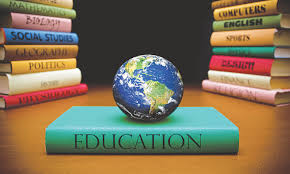Education is something acim that many have said much about. Most of these are complex or vague. Consider the Greek philosopher Aristotle’s saying that education is ‘an ornament in prosperity‘ and ‘a refuge in adversity‘. There have been a great many attempts to explain this description, but none have quite succeeded in satisfying my curiosity.
Alternatively, this is what the English essayist Joseph Addison has to say on education: What sculpture is to a block of marble, education is to a human soul. This too, has a great many explanations and elaborations. But does it really tell us what education is? Does it tell us why we need education? Not really, since the concept of the soul is, till date, a shadowy area. So how can we begin to comprehend what everyone claims is essential to life nowadays.
To put it simply, education is a process of training our mind so that we can apply it in a field of our choice: which is why we have education not as a single seamless entity, but as a whole made up of various divisions: music education, scientific and technological education, art education, even teacher education!
Education can be considered similar to picking and eating a fruit. Picking a particular fruit on the tree is akin to choosing a field to get an education of. When we bite into it, we get our first taste of the subject. As we chew on the bitten portion, we begin to understand its various aspects – the tastes, textures, intricacies and complexities of it – and when we are ready to move on to the next portion, we swallow what we have assimilated so far so that it can be used for further application. The tree we get the fruit from is the entire body of past thinkers’ teachings and the voice that tells us which fruit to pick is the interpreter of that knowledge: the teacher.
Throughout the lifelong course of education (no, it’s not like school or college which ends after a fixed period of time), we get to know about things that always were, still are and always will be around us, waiting to be recognized and acknowledged. Light plays a central role in education – both literally and metaphorically – for visual inputs are the best learnt and without light – of the sun or electrical – we would be missing out on a whole world of knowledge. In fact, this is where phrases like ‘light of knowledge’, ‘throw light on the matter’, ‘kept in the dark’ and so on came from.
You might be thinking, how can we narrow the infinite field of knowledge to select what we will need or want to know? This is where the part on ‘training the mind’ comes in. The mind, as psychology tells us, is the centre of cognitive faculties which enables consciousness, thinking, perception and judgement. It is the kitchen for the information we acquire, where we can season and prepare the bits and pieces of data into comprehensive knowledge.
Like any good kitchen, the mind has infinite capabilities (which is often the reason for confusion among us youth when it comes to deciding on a particular field to ‘specialize in’ for higher education) and therefore needs to be trained in order to make this choice clearer as every good chef needs to know what to or not to use for a dish. Unfortunately, the world we live in does not allow us to experiment with our capabilities without being ostracized or reduced to penury. Thus the need for specialization. And thus the need for education.
